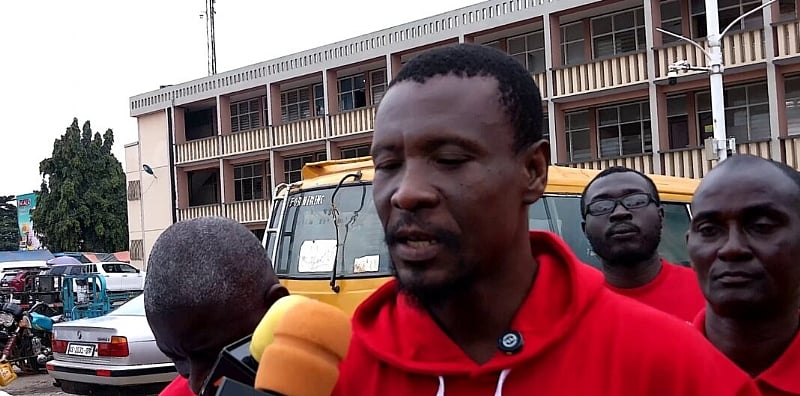Okomfour Kwadee, a renowned hiplife artist, has issued a stark warning to the youth of Ghana, cautioning them against the escalating menace of substance abuse. Having personally battled addiction, Kwadee now champions healthier lifestyles, advocating for physical exercise as a more sustainable and beneficial source of energy. He underscores the deceptive nature of substances like opioids, marijuana, and “red pills,” emphasizing that while they may offer a fleeting sense of euphoria, they ultimately lead to the destruction of lives and the shattering of dreams. Kwadee’s commitment stems from a deep concern for the youth and a firm belief that they deserve a brighter future, free from the clutches of addiction.
The “Red Means Stop! Say No to Red” campaign, spearheaded by the Willing Way Recovery and Rehabilitation Centre, has become a powerful platform for Kwadee’s message. This nationwide initiative aims to raise awareness about the devastating consequences of substance abuse, focusing particularly on the misuse of Tramadol 225mg, commonly referred to as “Red.” The campaign gathers recovered addicts, healthcare professionals, and community leaders, uniting them in a shared purpose: to educate and empower communities to combat the rising tide of drug addiction.
Lydia Manu, CEO of the Willing Way Recovery and Rehabilitation Centre, echoes Kwadee’s concerns, calling for more decisive government intervention to stem the flow of illegal drugs into the country. She emphasizes the urgency of the situation, highlighting the devastating impact on Ghana’s youth, describing addiction as a relentless predator robbing them of their future. Manu emphasizes the need for a multi-pronged approach, advocating for rehabilitation and ongoing support for those struggling with addiction, recognizing that it is a chronic brain disorder rather than a simple lack of willpower. She further stresses the importance of overcoming societal stigma, which often serves as a significant barrier to recovery, leading to relapse as individuals struggle to reintegrate into a society that judges and ostracizes them.
Faustina Nuako, the Ashanti Regional Mental Health Coordinator, shares similar sentiments, highlighting the critical need for early intervention. She observes a concerning trend among families who often overlook or dismiss the initial signs of addiction, delaying treatment until the individual develops severe mental health complications. This delay exacerbates the problem, leading to more complex and challenging treatment scenarios. Nuako paints a vivid picture of the advanced stages of addiction, where individuals lose touch with reality, often wandering the streets and engaging in erratic behavior, instead of receiving the necessary medical and psychological care. This underscores the importance of recognizing and addressing addiction early on, before it escalates into a full-blown crisis.
The campaign’s impact is amplified by the poignant testimonies shared by recovered individuals. Their stories serve as powerful reminders of the grip of addiction and the transformative power of recovery. These narratives of struggle, resilience, and hope inspire others and provide valuable insight into the challenges and triumphs of overcoming substance abuse. The campaign strategically combines these personal stories with expert insights from health professionals and the dedicated efforts of community volunteers, creating a comprehensive and compelling message.
The combined voices of Okomfour Kwadee, healthcare professionals, recovered addicts, and community leaders resonate with a singular, urgent message: Ghana’s future hinges on its ability to protect its youth from the debilitating effects of substance abuse. The “Red Means Stop!” campaign embodies this message, highlighting the importance of collective action, increased awareness, and robust support systems in turning the tide against addiction and securing a brighter future for the nation. It underscores that addressing substance abuse requires a multifaceted approach, from stemming the supply of illicit drugs to providing effective rehabilitation and support services, while simultaneously tackling the pervasive stigma surrounding addiction.














